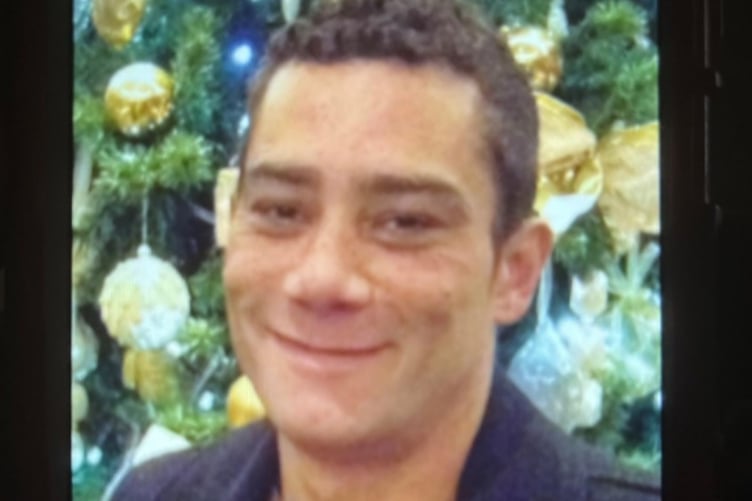A coroner has called for a Surrey prison to take action after finding “serious failings” contributed to a man’s suicide.
Former publican, Haydar Jefferies, died in hospital on March 5, 2023, after attempting to take his own life in his cell at HMP Coldingley, Woking, a few days earlier.
Staff at the prison failed to get medical attention for Mr Jefferies, who was reportedly found “naked on all fours, and barking like a dog”, before the suicide attempt.
Mr Jefferies’ mental health drastically deteriorated in prison, becoming reportedly “floridly psychotic”, while he was waiting for parole and this was left untreated by staff responsible for his care. He attempted suicide the day before his long-awaited parole hearing.
Caroline Topping, Assistant Coroner for Surrey, has now warned action should be taken by HMP Coldingley and the Parole Board to prevent future deaths. The report was addressed to the Minister of State for Prisons, Parole and Probation, CEO Parole Board and CEO of NHS England and HMP Coldingley.
After being found guilty of an assault offence in 2006, Mr Jefferies served seven years of an Imprisonment for Public Protection (IPP) sentence. Almost 10 years after his crime, Mr Jefferies was then recalled and sent back to prison in January 2022 on his IPP sentence.
But due to the nature of the IPP sentence and the delays in the Parole Board decision-making, Mr Jefferies was forced to stay at the prison despite all charges in the new case being dropped nine months prior.
During the inquest, which closed on November 29, 2024, the coroner found the delays from the parole board “more than minimally contributed” to his development of psychosis due to the psychological stress.,
The coroner voiced concerns that there is currently no process to accelerate face to face parole hearings for IPP prisoners when allegations leading to their recall have been withdrawn and no criminal action is being considered. Imprisonment under an IPP is a recognised suicide risk and delays in IPP parole exacerbates the risk, according to the report.
A Parole Board spokesperson said: “The Parole Board’s role is to decide whether a prisoner’s continued detention remains necessary for the protection of the public.
“We are acutely aware of the frustration and loss of hope felt by those people serving an Imprisonment for Public Protection (IPP) sentence. We also understand that delays to an individual’s parole process deeply impacts them, and we seek to avoid delays wherever possible.
“We have a number of existing processes in place to support the safe progression of IPP offenders. For example, we list indeterminate prisoners for an oral hearing as a priority over determinate prisoners, who have an end date to their sentence.
“We have also introduced a number of new processes that will strengthen our approach to the management of IPP’s in the parole process.
“As a result of the Victims and Prisoners Act those people who have not had their licence reviewed by the Parole Board, and who are not yet eligible for automatic termination, will have an earlier one-off licence termination review by the Parole Board. This will commence in February 2025.
“We have also stood up an IPP specific task force of members and staff in preparation for the changes expected in February, and to provide a dedicated and trained resource to effectively progress these complex reviews, where it is safe to do so. We have also committed to sharing a quarterly bulletin with stakeholders and the public.
“We welcome these changes. This will allow prisoners who have been properly punished and are no longer a significant risk to the public to move on with their lives without the fear of recall. “
From February 18, after his IPP resentencing was rejected Mr Jefferies developed severe depression with psychosis, according to the report. His family made several calls to the prison raising the alarm about his safety and declining mental health.
Neither his family’s calls, nor Mr Jeffries comments to prison staff were documented in prison records. The coroner said there is a risk that information about prisoners’ welfare is missed as there is not a central document system for matters of concern about inmates.
Statements about his presentation were logged “across a disparate landscape of on and offline recording systems”, according to Ms Topping, and a mental health referral was never made despite it being documented that one had been.
The coroner said there were “serious failings” from the HMP Coldingley staff, including:
- Not referring Mr Jefferies to a mental health team despite evidence showing intent to make an appointment from February 18-27
- Not undertaking a same-day mental health assessment after Mr Jefferies told staff he was ready to be killed, on February 28
- Not recording relevant risk information to how Mr Jefferies presented himself
- Not documenting concerns raised by his family through numerous telephone calls and concerning comments made by Mr Jefferies to custodial staff
- Not ensuring risk relevant information was shared with prison officers and clinical staff.
Custody staff are not trained in mental health and are unable to recognise red flag indicators of declining mental health, the report stated. The coroner also expressed worries there is no clinical mental health provision outside of weekday office hours, and overnight staffing levels mean it is difficult for prisoners in a mental health crisis to be taken to hospital.
The coroner said HMP Coldingley was taking the matters which led to Mr Jefferies death seriously. The prison is in the process of amending their safer custody policy, according to the report, but to date this has not been produced.
A HM Prison and Probation Service spokesperson said: “Our thoughts remain with Haydar Jeffries’ friends and family. We are carefully considering the coroner’s report and will respond in due course.”


.jpeg?width=209&height=140&crop=209:145,smart&quality=75)

.jpeg?width=209&height=140&crop=209:145,smart&quality=75)
Comments
This article has no comments yet. Be the first to leave a comment.